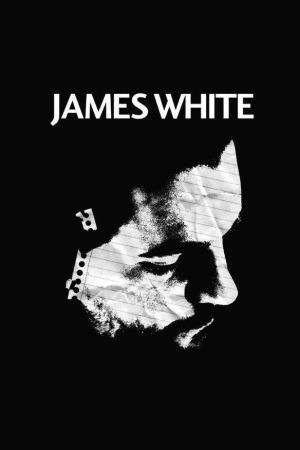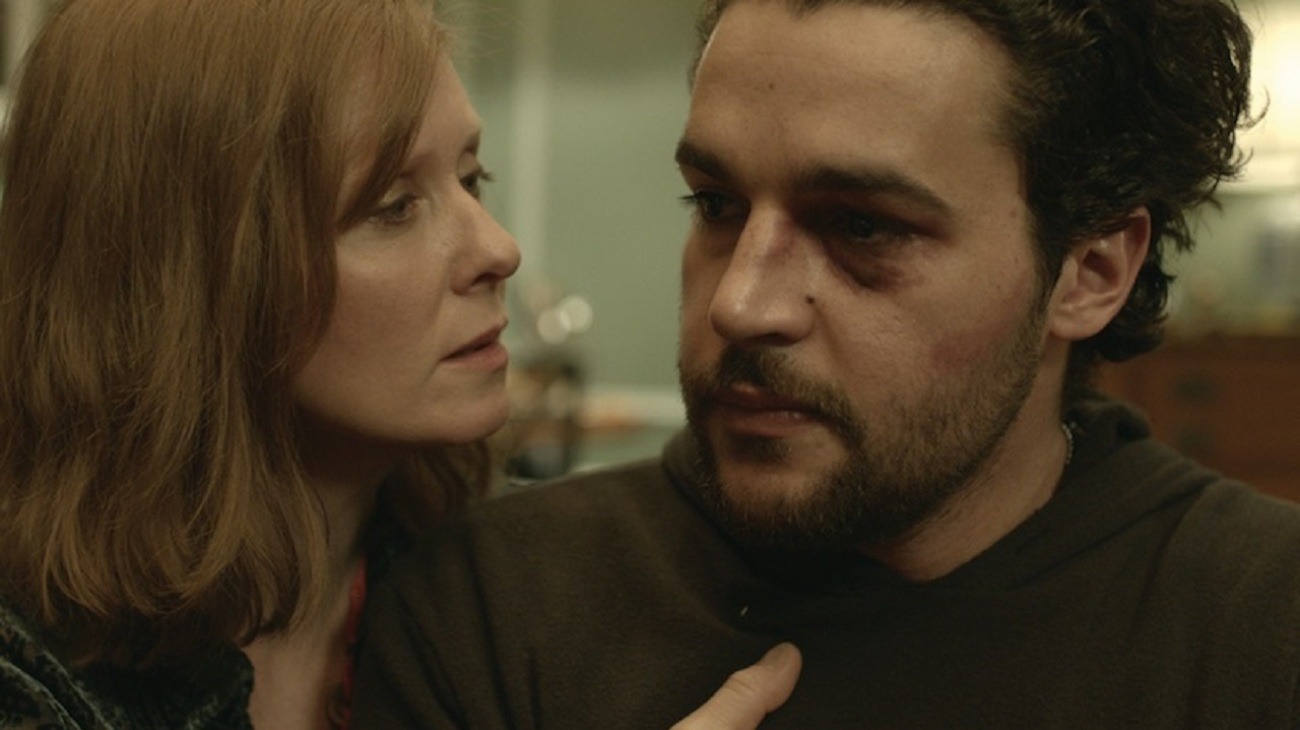
A review in brief
Nothing in writer-director Josh Mond's James White counts as my cup of tea: if the whole "low-budget indie about the life of a 20something New Yorker" wasn't enough of a red flag, along comes "aesthetic vocabulary that steals everything that the late John Cassavetes hadn't bothered to lock down" to murder any and all interest I might have possibly still been nurturing. As always, it goes to show not to prejudge: James White is, handily, the best intimate domestic narrative I saw in 2015, and first-time feature filmmaker Mond has secured himself an instant, high-level spot on the list of young directors whose career I'll be following with passionate interest in days to come. And this is all true even if I'd have to squint a little and lie a lot to call it "unusual" or "challenging" in any slightly useful sense of those words.
The situation is dead simple: James White (Christopher Abbott) is trying as hard as he can to burn himself out on living too fast and too hard, and the exact same time, he has to be the rock-stable adult in the White household, given that his mother Gail (Cynthia Nixon) is rotting away from cancer. This godawful circumstance generates much external and internal recrimination, shouting, teariness, and dare we say it... the discovery of personal strength? (obviously we dare - indie or not, this is an American movie).
The calm, unpretentious intelligence of Mond's screenplay gives James White an excellent foundation to build out on, but what turns the film from a nifty and thoroughly depressing family drama into a masterwork of the realist domestic indie form is the incandescent performances of Abbott and Nixon. The former, 28 at the time of filming, is a face I've seen at least a couple of times without ever registering him; that won't be happening again. His portrayal of James is everything a film like this could ever need: sensitive to the longing and need that animate the character without ever slightly asking us to forgive him or love him or offer him pity that he'd anyway throw out with all due disgust. Abbott impressively manages to frame James's reactions to his mother's illness that make us less sympathetic to the character, even as we completely understand why he feels that way.
Nixon, for her part, is up to something that I'm possibly overvaluing for personal reasons, but strictly objective film criticism is of value to nobody but the robots. Basically, aided by a tremendous make-up crew who suck all the life and fullness out of her flesh, she gives the best performance of a cancer victim I've ever seen in a movie, identifying the exact perfect sweet spot of being too tired to bother expressing how constantly angry she is. She builds the character completely, and only then adds in the material from the screenplay concerning Gail's frustration with James - this is a totally reactive supporting part, as written and as used within the story, but Nixon plays a dynamic, thoroughly complex psychology even within those limitations.
The result of these two characterisations smashing into is a devastating character drama that deserves all manner of respect and awe, even if it's so damn sad that "love" seems right out. The only thing that keeps me from calling it 2015's best two-hander is that it's not actually a two-hander; James has entire plotlines away from his mother. But it's their relationship that animates the film and drives it become one of the year's most unfairly invisible successes.
The situation is dead simple: James White (Christopher Abbott) is trying as hard as he can to burn himself out on living too fast and too hard, and the exact same time, he has to be the rock-stable adult in the White household, given that his mother Gail (Cynthia Nixon) is rotting away from cancer. This godawful circumstance generates much external and internal recrimination, shouting, teariness, and dare we say it... the discovery of personal strength? (obviously we dare - indie or not, this is an American movie).
The calm, unpretentious intelligence of Mond's screenplay gives James White an excellent foundation to build out on, but what turns the film from a nifty and thoroughly depressing family drama into a masterwork of the realist domestic indie form is the incandescent performances of Abbott and Nixon. The former, 28 at the time of filming, is a face I've seen at least a couple of times without ever registering him; that won't be happening again. His portrayal of James is everything a film like this could ever need: sensitive to the longing and need that animate the character without ever slightly asking us to forgive him or love him or offer him pity that he'd anyway throw out with all due disgust. Abbott impressively manages to frame James's reactions to his mother's illness that make us less sympathetic to the character, even as we completely understand why he feels that way.
Nixon, for her part, is up to something that I'm possibly overvaluing for personal reasons, but strictly objective film criticism is of value to nobody but the robots. Basically, aided by a tremendous make-up crew who suck all the life and fullness out of her flesh, she gives the best performance of a cancer victim I've ever seen in a movie, identifying the exact perfect sweet spot of being too tired to bother expressing how constantly angry she is. She builds the character completely, and only then adds in the material from the screenplay concerning Gail's frustration with James - this is a totally reactive supporting part, as written and as used within the story, but Nixon plays a dynamic, thoroughly complex psychology even within those limitations.
The result of these two characterisations smashing into is a devastating character drama that deserves all manner of respect and awe, even if it's so damn sad that "love" seems right out. The only thing that keeps me from calling it 2015's best two-hander is that it's not actually a two-hander; James has entire plotlines away from his mother. But it's their relationship that animates the film and drives it become one of the year's most unfairly invisible successes.






